Graham Reid | | 11 min read
The Twilights: What's Wrong with the Way I Live? (1967)
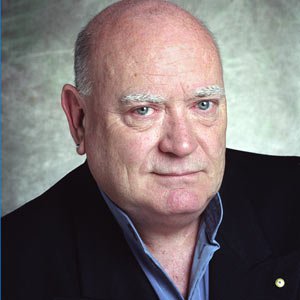
It would be a fair guess to say Michael
Chugg has been at more shows than any musician you can name. Because
when musicians take a break Chugg is at another show. Not that he
actually sits down and sees them, as a promoter he's more likely to
be backstage somewhere or, as at Gorillaz last year, just popping out
to stand at the side of the stage for 10 minutes.
Chugg – “Chuggy” as he is known –
has been in concert promotion since he was a teenager in Tasmania in
the early Sixties where he put on a dance to raise some money for the
cycling club he could no longer ride for because of a broken arm.
The show turned a modest profit and
Chugg began promoting local acts, then moved to Melbourne at 18 in
1965 where he teamed up with Michael Gudinski (later of Frontier
Touring and Mushroom Records) and Michael Browning at the
Consolidated Rock Agency which had a grip on club bookings around the
city.
The paths of Chugg and Gudinski – and
other promoters such as Robert Raymond and Paul Dainty – would be
woven together down the decades, although Gudinski did ask to see a
manuscript copy of Chugg's recently published freewheeling,
characteristically blunt, tell-all autobiography Hey, You in the
Black T-Shirt.
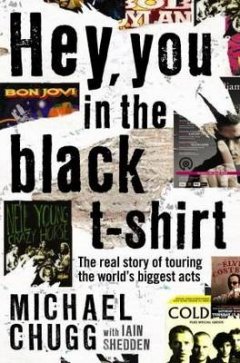 The
book opens backstage
at the 1977 Fleetwood Mac tour where Chugg is sitting alone at
medieval banquet table which is covered in whole cooked pigs, sides
of beef, lamb, whole chickens and turkeys . . .
The
book opens backstage
at the 1977 Fleetwood Mac tour where Chugg is sitting alone at
medieval banquet table which is covered in whole cooked pigs, sides
of beef, lamb, whole chickens and turkeys . . .
The band – nine month after their 40
million-selling album Rumours and travelling with a mobile
gymnasium, two grand pianos (one of which is never used) and a
masseuse – are on stage with cocaine in beer bottle caps
conveniently laid out in neat rows on a card table.
“Yeah it was the excess of the excess
period,” laughs the man who indulged along with everyone else. “It
was an amazing tour. The night they played we had the biggest cream
pie and water fight I've ever been involved in. Paul Dainty got the
shits and walked back to the hotel, but he used to get the shits a
lot.”
That blunt honesty – coupled with
casual profanity and often a notoriously aggressive persona which
seen him get on stage and berate audiences he thinks are misbehaving
– has been a hallmark of Chugg's career as much as the stories he
can tell.
It was his outrageous and funny
anecdotes of the famous and facile which prompted people to ask when
he was going to write a book. So with a promoter friend Mark Pope and
a tape-recorder he went to Byron Bay and “got very stoned and
laughed for a week and recorded about 60 hours”.
Pope found pulling the story together
too difficult so another of Chugg's friends, Iain Shedden of the
Australian, stepped in (“he was a drummer in the Saints, they tell
me the worst drummer they ever had”) and pulled the book together
in Chugg's distinctive voice.
“I gave him a list of people he
needed to talk to because obviously I can't remember everything. I'm
quite open about it, there are two chapters in that book that I
couldn't remember at all.”
While the book settles a few old scores
it also charts his rise, and occasional misstep, through rock'n'roll,
and its attendant diversions, to where he is now running his own
company Chugg Enterprises.
He misses some of those excesses of the Seventies “and you couldn't do it now. It's a real business now and its
very corporate. Who would have ever thought that Michael Chugg would
have seven people in his accounts department?”
“Money was never my forte though,
money was never why I did this stuff. I was and still am a great
believer that if you do something right the money comes. Whenever
I've done anything purely for money you can guarantee nine times out
of 10 it fucks up.”
Chugg sailed close to bankruptcy twice,
and reflects on turning his life around in the early Eighties when he
decided there had to be more to life than what he was doing. A friend
went to a health farm and came back a changed man, Chugg decided to
do the same.
“I'd got so involved in music and had
forgotten about the outside world, and how to communicate with normal
people.”
Because normal people don't like to be
shouted at?
“Yeah, all that sort of stuff.”
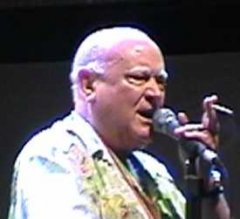 His reputation for berating audiences –
hence the book title – is legendary and has been seen a couple of
times in New Zealand, notably when someone threw a coin at Neil Young
at a Supertop show in the early Nineties and Chugg abused the audience at
length and had the offender brought backstage: “I picked him out, I
got him. Neil read him the riot act. I don't imagine the guy imagined
in a million years he was going to hit him in the head, but it was
the most beautiful split,” he laughs.
His reputation for berating audiences –
hence the book title – is legendary and has been seen a couple of
times in New Zealand, notably when someone threw a coin at Neil Young
at a Supertop show in the early Nineties and Chugg abused the audience at
length and had the offender brought backstage: “I picked him out, I
got him. Neil read him the riot act. I don't imagine the guy imagined
in a million years he was going to hit him in the head, but it was
the most beautiful split,” he laughs.
His most scary concert was Pearl Jam
around the same period: “The crowd was out of control and the
coppers were out of control and there were too many people in that
tent. I went up and tried to calm it down and Eddie [Vedder of Pearl
Jam] went nuclear, 'How dare you talk to our audience'.”
He laughs that when he did a Pearl Jam
tour in 2009 and the crowd were getting over the top “Eddie did a
Chuggy. I went up and said 'I see you've been taking lessons from
me'.”
As he talks the anecdotes flow:
Auckland promoter Hugh Lynn brokering a deal between rival bikie
gangs before the ZZ Top concert; the embarrassment of having to play
Bob Dylan at the inadequate North Shore Events Centre (“I've done
every [Dylan tour] since '86 and we have our moments. Some tours
he'll sit and talk, others he'll just grunt at me”); and the
decline in audience from those 60,000 peaks in the Seventies to what
it was like a decade ago (“if we pulled 30,000 in Auckland it was a
monster crowd”).
He tells of catching up with a friend
like Billy Joel when they are both in New York (“we go to one of
the old Mafia restaurants for lunch”); trying to get Robert Plant
to tour (“that close to signing the deal every year for the last
four to do the blues festival but he always pulls out at the last
moment”) and how he's working on getting Roger Waters' current tour
of The Wall to Australia an New Zealand.
“We're talking about it, but were not
sure they can make sense of it in an arena, the stages are not quite
wide enough. And we're not sure about outdoors because of the weather
and securing the wall. The technology has moved ahead and the effects
are magnificent, but the wall itself is made out of nothing. So
logistics will dictate whether that comes.”
And about touring the likes of Liza
Minnelli.
“When we did that '88 Main Event tour
with Sinatra she was off the planet, drinking and so on. But the last
tour we did . . . well, she's an old lady, she's got arthritis,
walks with a limp, she's slow and we had to have a people-mover in a
couple of venues because it was too far for her to walk.
“But the amazing thing is as soon as
she walks on the stage it's like, 'Kaboom!' Unbelievable.”
He has toured some hip-hop acts (“I
was first to tour Snoop Dogg whom I'm still good friends with to this
day”) but he is “disenchanted” with them: “They do short sets
and cause so many problems, the deals change, the posse gets bigger
and some of them are quite resentful. There is a professional element
coming through, but often they treated us like shit.”
And they
destroy hotel rooms.
But don't young rock bands do that too?
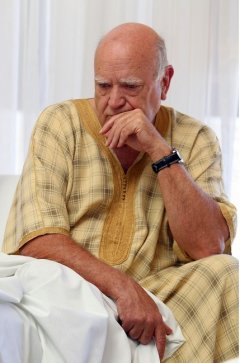 “Different attitude and reasons.
There was never a lot of hate when the white rock bands [wrecked a
hotel room], they were just doing it because they could . . . and
were having fun.”
“Different attitude and reasons.
There was never a lot of hate when the white rock bands [wrecked a
hotel room], they were just doing it because they could . . . and
were having fun.”
As befits someone who has been in the
business for over four decades, Chugg has been a good picker of
trends: he spotted the whole New Wave movement in the late Seventies
when he was in Britain.
“I came back to Dainty, who I was
working with at the time, and said, 'We've got to start doing this
stuff' and he basically said, 'I'm not touring that East End scum'.
“Paul was always a bit of a Pommie in
that [regard]. I'd been involved with Premier and Gudinski for about
four years and one day in a Premier Artists meeting after I'd got
back and he'd got back, I said, 'I think it's time we started a
touring company' and Gudinski said, 'As a matter of a fact I've just
been in New York with [the Police's manager] Ian Copeland.
“He opened his briefcase and he'd
signed the publishing for the lot of them, the Clash, the Police, the
Specials, Madness . . . He had the lot.
“I said, 'I know what we can call it'
and I just threw it out there but within half an hour we had The
Frontier Touring Company. Our first two tours were Squeeze and the
Police.”
Chugg admits that right from the start
he was in the right place at the right time and riding a wave of
Australian entertainment in the Sixties. He managed Billy Thorpe
(“Thorpie”), the La De Das, the Twilights and many others.
But it is hasn't always been easy and
he's missed some big money spinners: “The first Robbie Williams
tour we struggled to do one Sydney Entertainment Centre and one
Melbourne show at the Rod Laver, but in New Zealand we did 140,000.
He was a superstar here. But before that first tour he'd only sold
20,000 album in Australia. Within six months it was half a million.
“Then the next time we brought him
back to New Zealand it was a struggle.
“When I first went out on my own [in
2000] it was wake up, I had to be Gudinski and Chugg and I made a lot
of mistakes, two of the biggest were the Red Hot Chili Peppers and
Santana. Both disasters, and Chili Peppers had just done their
biggest world tour ever with Californication.
“They did 150 shows and I was the
only promoter who lost money, mainly because the New Zealand shows
didn't work. And Santana didn't come in on that big album but the
next one.”
He says out of caution he turned down
three shows – Bon Jovi, Iron Maiden and Guns'N Roses – which the
Dainty Corporation picked up, and “in six months I gave Dainty $6
million in profits”.
The Laneways Festival in New Zealand in
January 2011 isn't selling as well as the first one either: “People
are saying, 'You don't really have an Echo and the Bunnymen for
nostalgia, or a Florence and the Machine who is starting to break
mainstream.
“But it's been interesting seeing the
top albums charts [of 2010] and all those Laneways acts are in the
top 20 albums, so I think people will get it and come.
“In Australia where it's been going
for six years we sold out Sydney and Melbourne in a day and we've now
expanded into Singapore and it's selling really well. But it's mainly
about young acts who come through the web.”
Chugg is a great believer in internet
marketing: for a Radiohead tour they took one small newspaper ad and
the rest done through webmail. It sold out 40,000 ticket in a couple
of hours.
“We had six million on data base for
Robbie Williams and sold half a million tickets, so [the internet]
has reduced out marketing costs.
“With Gorillaz we did the whole Tweet
thing and you can spark it. I have one girl in the office who does
nothing but Tweet, keeps the stock up in our on-line shop and keeps
the website current.
“But we still get out there and put
up posters. What's happened in Australia is record companies don't
have any staff anymore, so if you live in Wogga or Armadale and have
a record shop or run a radio station you don't see the record
company.
“But every few months you see the
Chuggy girl come through town putting up posters for AC/DC or giving
out Rodrigo y Gabriela records, and we'll give them television ads
to play.
“I've given a couple of the kids who
do that lessons in how to do radio interviews so they rock into town
and people are so excited. My son Nick went out and in some towns he
was doing six radio interviews in day because no one goes there any
more.”
For himself, Chugg – a collector of
Winston Churchill memorabilia which he keeps in the office of his
getaway home in Phuket, Thailand – says he doesn't go to too many
shows to sit and enjoy them as a punter. Although “I did see Bon
Jovi at Star City in Sydney in a 2000 seat lyric theatre. I didn't
sit down, put it that way, it was an amazing show. Only an hour too,
which I can handle.
“But I don't go out that much or the A list parties and receptions. That was the first real social A list event I've been to in a long time, mainly because I can't be bothered going and drinking bad alcohol.”
Want to read more about live music as it was lived on stage. then go here.

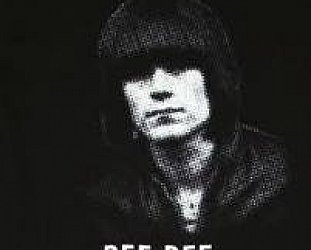
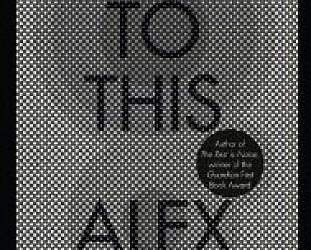
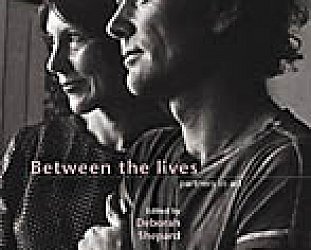
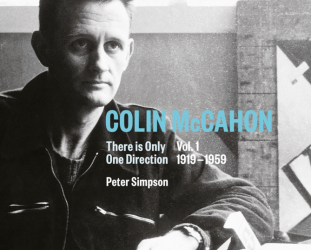
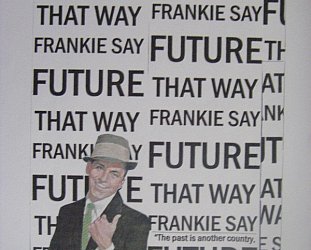
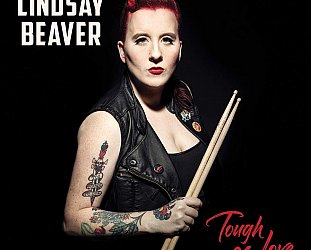
post a comment